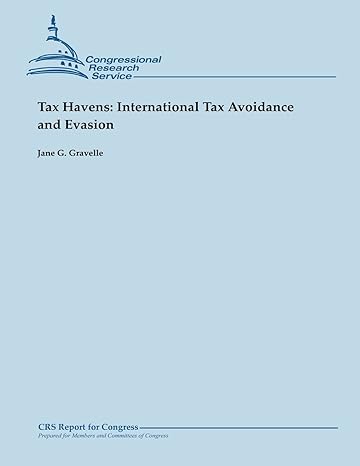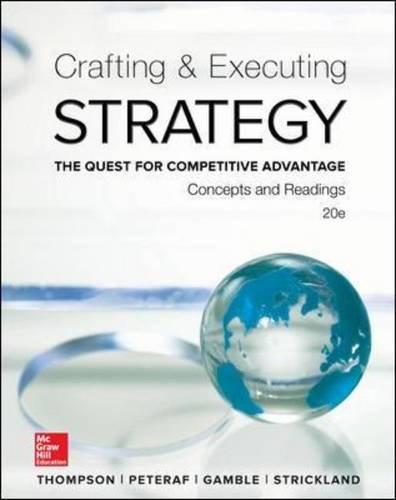Go back


Tax Havens International Tax Avoidance And Evasion(1st Edition)
Authors:
Jane G. Gravelle

Cover Type:Hardcover
Condition:Used
In Stock
Shipment time
Expected shipping within 2 DaysPopular items with books
Access to 30 Million+ solutions
Free ✝
Ask 50 Questions from expert
AI-Powered Answers
✝ 7 days-trial
Total Price:
$0
List Price: $16.99
Savings: $16.99(100%)
Solution Manual Includes
Access to 30 Million+ solutions
Ask 50 Questions from expert
AI-Powered Answers
24/7 Tutor Help
Detailed solutions for Tax Havens International Tax Avoidance And Evasion
Price:
$9.99
/month
Book details
ISBN: 978-1482527681
Book publisher: CreateSpace Independent Publishing Platform
Get your hands on the best-selling book Tax Havens International Tax Avoidance And Evasion 1st Edition for free. Feed your curiosity and let your imagination soar with the best stories coming out to you without hefty price tags. Browse SolutionInn to discover a treasure trove of fiction and non-fiction books where every page leads the reader to an undiscovered world. Start your literary adventure right away and also enjoy free shipping of these complimentary books to your door.
Book Summary: Recent actions by the Organization for Economic Cooperation and Development (OECD) and the G-20 industrialized nations have targeted tax haven countries, focusing primarily on evasion issues. The HIRE Act (P.L. 111-147) included a number of anti-evasion provisions, and P.L. 111-226 included foreign tax credit provisions. Some of these proposals, and some not adopted, are in the American Jobs and Closing Loopholes Act (H.R. 4213); the Stop Tax Haven Abuse Act (S. 506, H.R. 1265); draft proposals by the Senate Finance Committee; two other related bills, S. 386 and S. 569; the Bipartisan Tax Fairness and Simplification Act (S. 3018); and proposals by President Obama. Multinational firms can artificially shift profits from high-tax to low-tax jurisdictions using a variety of techniques, such as shifting debt to high-tax jurisdictions. Since tax on the income of foreign subsidiaries (except for certain passive income) is deferred until repatriated, this income can avoid current U.S. taxes and perhaps do so indefinitely. The taxation of passive income (called Subpart F income) has been reduced, perhaps significantly, through the use of “hybrid entities” that are treated differently in different jurisdictions. The use of hybrid entities was greatly expanded by a new regulation (termed “check-the-box”) introduced in the late 1990s that had unintended consequences for foreign firms. In addition, earnings from income that is taxed can often be shielded by foreign tax credits on other income. On average very little tax is paid on the foreign source income of U.S. firms. Ample evidence of a significant amount of profit shifting exists, but the revenue cost estimates vary from about $10 billion to $60 billion per year. Individuals can evade taxes on passive income, such as interest, dividends, and capital gains, by not reporting income earned abroad. In addition, since interest paid to foreign recipients is not taxed, individuals can also evade taxes on U.S. source income by setting up shell corporations and trusts in foreign haven countries to channel funds. There is no general third party reporting of income as is the case for ordinary passive income earned domestically; the IRS relies on qualified intermediaries (QIs) who certify nationality without revealing the beneficial owners. Estimates of the cost of individual evasion have ranged from $40 billion to $70 billion. Most provisions to address profit shifting by multinational firms would involve changing the tax law: repealing or limiting deferral, limiting the ability of the foreign tax credit to offset income, addressing check-the-box, or even formula apportionment. President Obama’s proposals include a proposal to disallow overall deductions and foreign tax credits for deferred income and restrictions on the use of hybrid entities. Provisions to address individual evasion include increased information reporting and provisions to increase enforcement, such as shifting the burden of proof to the taxpayer, increased penalties, and increased resources. Individual tax evasion is the main target of the HIRE Act, the proposed Stop Tax Haven Abuse Act, and the Senate Finance Committee proposals; some revisions are also included in President Obama’s plan.
Customers also bought these books
Frequently Bought Together
Top Reviews for Books
DARRYL GOODWIN
( 4 )
"Delivery was considerably fast, and the book I received was in a good condition."
Tony Rosselli
( 5 )
"Delivery was considerably fast, and the book I received was in a good condition."










